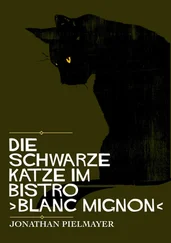John felt simultaneously excited and jilted by the news that there would be others at dinner; the likelihood of this had never occurred to him, just as he hadn’t imagined, though of course it made perfect sense, that Osbourne would be lunching other prospective employees on that brief trip to Manhattan last week. But in order to think about any of it — or about the five strangers and potential colleagues who met them at the restaurant, on the pedestrian mall downtown — he had to fight his way through a haze of much more elemental and blissful associations. Ham with gravy, sweet tea, cheese grits, fried chicken served as a side dish: it was exotic to everyone there but him, and while they all made jokes about diminishing their life expectancy if they moved down here, John tried to be discreet about lowering his head nearer to the table and just smelling it all.
Around the small table it was easy for Osbourne to rule the conversation. No one was inclined to interrupt him in any case. They had all come down here to consider their futures, but for now Osbourne seemed much more at home talking about the past. He told them the story of the creation of Apple’s “1984,” the spot that revolutionized their form. He talked about a weekend spent in Woody Creek with Hunter Thompson, trying unsuccessfully to get him to write some copy for them; in the end they all got high instead and test-fired automatic weapons in the meadow behind the ranch. And of course he had a great many stories about the artists of the 80s boom, Schnabel and Fischl and Borofsky and Jim Dine, whose reputations, he implied in a modest way, he had done much to create. Only through these art-world anecdotes did John learn, to his amusement, that the moody young man on Osbourne’s immediate left, wearing black denim in the ninety-degree heat, was Jean-Claude Milo, the artist who had stood them up at his Manhattan loft on that first Saturday morning, almost a year ago now.
Osbourne wasn’t drinking, and so no one else dared have more than one; still, it was late — past ten o’clock — and their spirits high when the hostess appeared and told Osbourne he had a phone call. Acting as if nothing were amiss about this, he excused himself; and the six of them whom he was courting began to ask shyly about one another.
Four were from New York (including John and the artist Milo); one was from Minneapolis and one had met Osbourne, she said, in the San Francisco gallery where she worked part-time as a receptionist. One was a published novelist, though John had never heard of him. A former copywriter from Ted Bates said he had quit that job a year ago to write speeches for Al Gore; he was the one who pointed out to the group the self-evident fact that they were all white.
“The provocateur,” whispered the woman sitting next to John, at the end of the table. “Stirring up trouble on the shop floor, when we don’t even have a shop floor yet.”
“Have you seen the place?” John asked her quietly. She looked at him in surprise, and he realized it was because of his accent.
“Yesterday,” she said. “It’s gorgeous. Nice to work in a place you’re not appalled by, I guess, but I’m a little worried I’ll be too afraid to leave a McDonald’s wrapper lying around. Or even leave it in the garbage, for that matter.”
“So you’ve already agreed, then? I mean to come down and work here?” The others were engaged in a different conversation.
She blushed. She wore circular glasses, with plumb-straight blond hair and the strong, slightly bottom-heavy build, as John thought, of someone who’d excelled at field hockey as a girl. “Last night,” she said. “About six hours after I got down here from New York, actually. It’s kind of embarrassing how quickly I caved. I hope I know what I’m doing. What about you?”
John shrugged. “I’ve been here about six hours myself now, I guess,” he said, laughing.
“Where’d you come from? You sound like you came from across the street.”
“Manhattan, same as you. I’m John Wheelwright, by the way. I work at what used to be Canning Leigh & Osbourne.”
She wiped her fingers on her napkin before holding her hand out to him.
“Elaine Sizemore,” she said.
He wouldn’t realize until much later that that was the moment that decided it for him. In fact, by the next morning, when Osbourne stood with his hands on the doorframe of John’s rented car, he still hadn’t given his answer yet. Osbourne didn’t push.
“You go on home and talk things over with your wife,” he said. John didn’t correct him. “I know you want your future to include her. Anyone would understand that. It was a pleasure to spend some time with you down here.”
John walked back into his apartment and dropped his bag. It was eight-thirty on a Sunday night; Rebecca wasn’t there. He had told her, he was sure, what time he was returning.
When she came back some two hours later, she smiled weakly at him. “How was your trip?”
“Fine. Where have you been?”
Their voices weren’t angry; they were cautious, simulated voices, to ward off silence.
“The movies. I went to Film Forum to see Mr Death . You said you weren’t interested, so.”
She hung her jacket in the closet. The silence was like a buzzing. “How was it?” John asked.
“Great,” she said tonelessly. “You should see it.”
She went into the bathroom, and he waited for her to come out; but when she did she went directly to their bedroom. After a minute he followed her in. She was already under the blankets, reading.
“Do you not want to talk about this now?” he said, standing over her.
“I’m scared to talk about it,” she said. But then, when he didn’t leave, she said without looking up, “So are you going down there? I mean to take the job?”
“I want to go. Yes. I’m not making any demands here.”
“Oh, come off it,” she said.
In five days he and Roman were off to Omaha. Their work was already done. Canning must have discussed it with some of the others, because that week Dale, then Mick, then a few more of the creatives stopped by John’s desk and asked to see a preview.
“Is it true?” Dale said.
Roman jumped up and lifted gingerly from a wooden crate a board with a huge, soft-focus beauty shot of a hamburger behind the words “Come on. It’s in your genes.”
“Oh my God,” Dale said, grinning. “You know what it’s like? It’s like you’re trying to out-Osbourne Osbourne.”
Roman stuck a pen between his teeth, cigar-style. “Honesty, baby,” he said. “That’s the play.”
John didn’t force the conversation with Rebecca; in fact, they were barely speaking. He had made up his mind he was going to Charlottesville, somehow, without making up his mind that he was willing to go without her. On Thursday evening Rebecca walked out of the bedroom, eyes red, and told John he had a phone call.
It was Osbourne. “My,” he said. “Is it a bad time?
“No, Mal, not at all.” Rebecca, in her nightgown, was out of the room again.
“If you’re sure. Your wife sounded somewhat … cold. Were you fighting?”
“Avoiding fighting, I suppose.” He had a thought, and with everything so fraught it seemed an appropriate time for boldness. “Have you ever been married, Mal?”
“Me? Yes, once. So look, I’m anxious to hear your decision. I’m willing to go as far as I can to accommodate you, but on the other hand we’re approaching our start-up date and if you’re not with us I need to make other plans.”
John stared down the empty hallway.
“If it affects your decision at all, the others you met this weekend have all signed on, with one exception, the speechwriter for Gore.”
The hard part wasn’t deciding; he had already decided. The hard part was saying it, letting that decision start to ramify. Turning his back on everything.
Читать дальше












